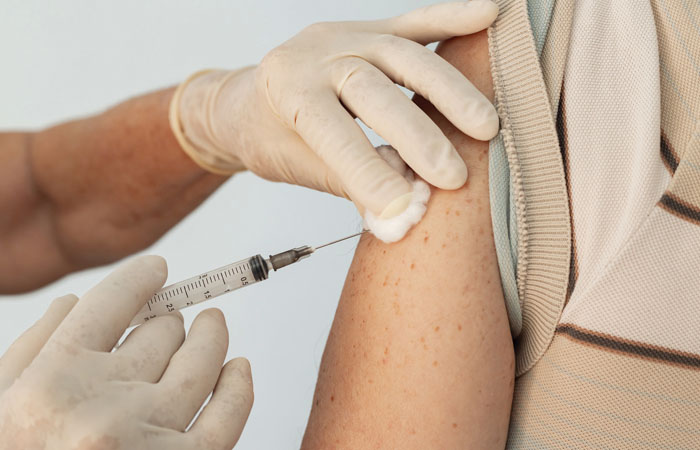Treatment options
People with mild symptoms who are otherwise healthy should manage their Covid-19 symptoms at home. However, there are treatments available to people depending on whether they are in a high-risk group.
Treating high-risk patients
People regarded as at high-risk of Covid-19 predominately include those who are immunosuppressed, but the full list can be found here: bit.ly/3UKGjyq.
Those who are high-risk, aged 12 or over, have symptoms of Covid-19 or have tested positive may be eligible for a Covid-19 treatment assessment with the NHS. Treatment for high-risk individuals is based on suitability and includes:
- Nirmatrelvir plus ritonavir (Paxlovid)
- Sotrovimab (Xevudy)
- Molnupiravir (Lagevrio)
- Remdesivir (Veklury).
Nirmatrelvir plus ritonavir, molnupiravir and remdesivir are antiviral medicines. Some of the treatments come in the form of capsules or tablets to swallow, others are administered via infusion.
People who think they may be eligible for Covid-19 treatment can find out more via their local integrated care board (ICB) at: nhs.uk/nhs-services/find-your-local-integrated-care-board/.
Managing symptoms
The majority of people should be reassured that their symptoms can be managed at home and there are OTC solutions and self care tips they can take to do so. Pharmacy teams can suggest that those with Covid ensure they get plenty of rest and drink plenty of water to avoid dehydration.
Paracetamol or ibuprofen can also be recommended. To help ease breathlessness, suggest:
- Keeping heating low
- Opening windows
- Practicing breathing slowly, such as in through the nose and out through the mouth
- Sitting upright and relaxing the shoulders – slightly leaning forwards may also help.
Customers should avoid lying on their back whilst coughing, using a fan to cool down a room (as it may spread the virus), and try to avoid panicking whilst feeling breathless as this can make it worse. See: hopkinsmedicine.org for ‘Coronavirus Recovery: Breathing Exercises’ for more.
Vaccinations
Covid-19 vaccinations aim to reduce the risk of severe symptoms, improve recovery time, protect against different variants of the virus and reduce risk of hospitalisation and death.
Those under 18 will only be offered certain vaccines and those under 12 will be given a smaller dosage. The Covid-19 vaccines currently used on the NHS are: Spikevax (formerly Moderna) and Pfizer/BioNTech (Comirnaty). These vaccinations do not contain any animal products, including eggs, according to the NHS.
Common side effects of the Covid-19 vaccine can include: a sore arm, tiredness, headache, feeling achy and mild flu-like symptoms. Paracetamol can be recommended as a pain relief option.
On a rare occasion a person may have an allergic reaction to a vaccine. A severe allergic reaction could cause anaphylaxis, however, the vaccinator should be trained to treat them immediately.

